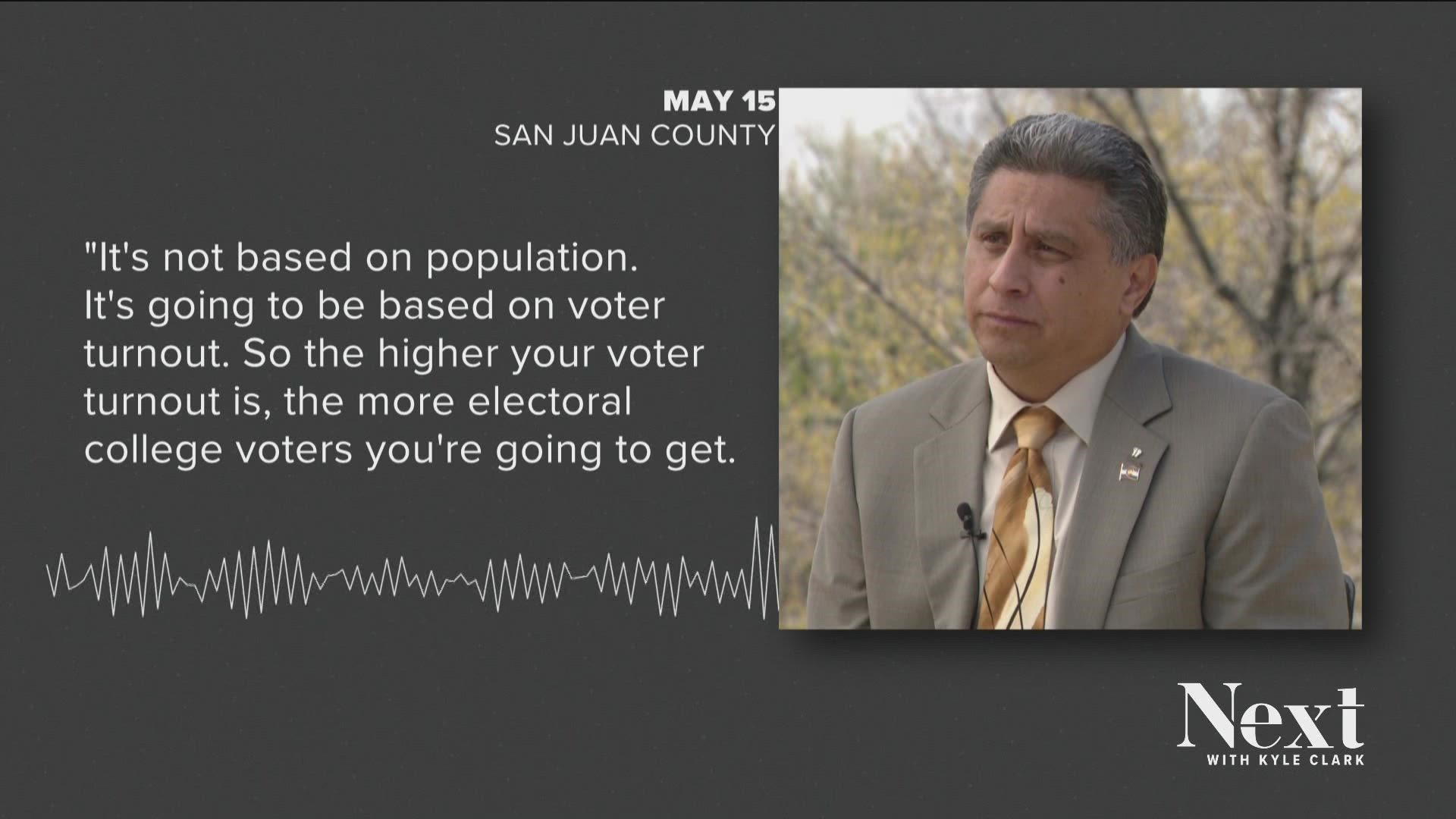DENVER — Coloradans have elected just one Republican governor in the last 50 years. A current GOP candidate for governor has an idea that could change that: stop counting each vote equally.
Former Parker Mayor Greg Lopez, who holds the top line on the 2022 Republican primary ballot, says Colorado should create an electoral college system for electing candidates to statewide office.
The plan, which would be the first of its kind on the state level, would give far more voting power to Coloradans in rural, conservative counties and dilute the voting power of Coloradans in more populous urban and suburban areas. Even as turnout numbers vary over time, the sheer number of rural conservative counties would create a built-in advantage for Republicans.
Lopez outlined his proposal at a May 15 campaign stop in Silverton. An audio recording of the event made by a political tracker was provided to 9NEWS.
“One of the things that I’m going to do, and I’ve already put this plan together, is, as governor, I’m going to introduce a conversation about doing away with the popular vote for statewide elected officials and doing an electoral college vote for statewide elected officials,” Lopez said.
Lopez said his electoral college plan would weight counties’ votes based on their voter turnout percentage to encourage turnout.
“I’ve already got the plan in place,” Lopez said. “The most that any county can get is 11 electoral college votes. The least that a county can get is three.”
The Lopez campaign would not answer questions about how the plan would work unless 9NEWS’ Kyle Clark would agree to a second sit-down interview with Lopez “face-to-face, to give you the exclusive here at the Campaign HQ in Parker, CO.”
Lopez sat down for an extended interview with Next with Kyle Clark earlier this month.
INTERVIEW: Colorado gubernatorial candidate Greg Lopez
9NEWS analyzed how Lopez’s proposal could have impacted the results of the 2018 gubernatorial race. In lieu of details on the plan from the Lopez campaign, 9NEWS sorted the 2018 county turnout percentages in the gubernatorial race and sorted then into as equally-sized tiers as possible, assigning 11 electoral votes to the highest turnout tier and three electoral votes to the lowest turnout tier.
Under Lopez’s plan, that governor's race would have been a runaway win for Republicans, who lost the actual race by double-digits when each vote was weighted equally.
Democrat Jared Polis defeated Republican Walker Stapleton by more than 10 percentage points. Lopez’s electoral college plan would have swung that race for Republicans by nearly 30 percentage points, resulting in the equivalent of an 18 percentage point victory for Stapleton over Polis.
Colorado’s rural, conservative counties had seven of the 10 highest voter turnout percentages in the 2018 race for governor. Those counties had an average of 1,077 ballots cast in the election.
A 9NEWS analysis estimated that, under Lopez’s plan, Polis would have received 181 electoral votes to Stapleton’s 263.
Lopez’s weighting system would have given the 2,013 combined voters in Hinsdale, Kiowa and Mineral counties a total of 33 electoral votes, more than double the 14 electoral votes of Denver, Arapahoe and Adams counties’ combined 761,873 voters.
University of Denver Assistant Professor of Political Science Sara Chatfield told 9NEWS that Lopez’s electoral vote proposal would be unlikely to pass the required statewide vote to be added to the Colorado constitution.
Chatfield said if the plan did pass, it likely would be ruled unconstitutional. Chafield pointed to the 1964 Supreme Court decision in Reynolds v. Sims striking down Alabama’s plan to give one state Senate seat to each county.
“The Supreme Court struck that down on the principle of one-person, one-vote. So I think that case, although it’s a little different, demonstrates that just because something is in the U.S. Constitution doesn’t mean it’s actually democratic or constitutional at the state level,” Chatfield said.
Lopez was clear that his goal is to stop Coloradans’ votes from being counted equally.
“It’s not about one-person, one-vote,” Lopez said at the May 15 campaign stop. “It’s about true representation.”
Lopez’s dominant showing at the Republican state assembly landed him the top line on the June 28th primary ballot, where he faces University of Colorado Regent Heidi Ganahl for the GOP nomination.
The winner will face Polis in November’s general election where each vote will count equally.
SUGGESTED VIDEOS: Full Episodes of Next with Kyle Clark

